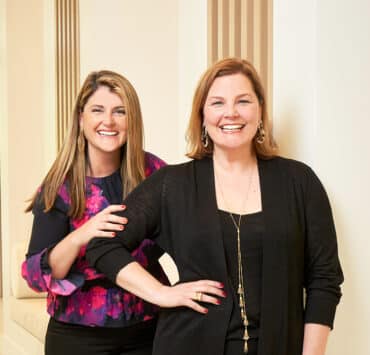|
Getting your Trinity Audio player ready...
|
When looking at the leadership of Brightworks Sustainability, it feels like seeds planted 20 years ago are now bearing fruit. “We’ve been playing the long game for a long time,” jokes Brandon G. Sprague, principal of the company.
Founded in 2001, Brightworks has been enjoying rapid growth lately. The ascent of environmental, social, and corporate governance (ESG) has multinationals and small businesses alike knocking on its doors for help. ESG calls on business to create value in ways that are ethical, environmentally responsible, and socially just, while fulfilling obligations to shareholders. Customers, employees, investors, and other stakeholders are increasingly agreeing on the urgency for business to uphold these principles.

Today, Brightworks’ largest clients include Apple, Bank of America, Brookfield, Facebook, LinkedIn, Mastercard, Microsoft, and Salesforce, not to mention institutions like Harvard University and UCLA. But it was not always this way.
In its early years, Brightworks offered workshops on sustainability in business, referencing established environmental standards like ISO 14001 and the Natural Step framework. In general, Brightworks found audiences interested in the ideas it advocated—namely in Brightworks’ hometown of Portland, Oregon, well-known for its environmental ethos. But it was not uncommon for prospective customers to become overwhelmed, if not filled with disbelief.
Despite some potential customers’ hesitation, UC Santa Barbara was eager to hire Brightworks to facilitate its first-ever campus sustainability plan, which drew attention to the firm and gave Brightworks expertise in campus sustainability planning that clients seek today.
But it was a development that occurred in 2001 that may have first foretold the current surge in demand for Brightworks’ ESG services—that fall, the US Green Building Council officially launched the LEED Green Building Rating System.
“Because of LEED, real estate was ahead of the curve by virtue of having an actionable framework to make the process of addressing sustainability relatively easy,” Sprague explains. Once the LEED rating system launched, Brightworks received a call from Gerding Edlen Development (now Edlen & Company), which USA Today would later call “the most sustainable developer in the United States.”
Gerding Edlen asked Brightworks to manage the LEED certification of two new developments in Portland: the Brewery Blocks and South Waterfront. These high-profile test cases, well over one million square feet each, proved highly successful environmentally and commercially.
The working relationship between Gerding Edlen and Brightworks proved to be another important factor in Brightworks’ recent surge in ESG consulting contracts. As Sprague collaborated with the company, “we began to systematize our efforts, leading us to establish a new service offering in what we call sustainability programs. These are groups of simultaneous projects, as opposed to stand-alone projects,” Sprague explains, adding that Brightworks is now often tapped to manage sustainability for comprehensive, multipronged corporate real estate programs within large enterprises.
“Because of LEED, real estate was ahead of the curve by virtue of having an actionable framework to make the process of addressing sustainability relatively easy.”
With 50 employees, Brightworks now operates out of offices in Berkeley, Boston, Cleveland, Los Angeles, Nashville, New York, and Portland. Its services fall into four practice areas beyond ESG and corporate environmental management services: sustainable and healthy buildings; sustainable and healthy materials; energy analysis and optimization; and building performance, operations, and maintenance.
In addition to tech, Brightworks’ largest clients also cluster in financial services and education. “Our largest clients today are so-called ‘tertiary sector’ companies, those with intangible products,” Sprague explains, referring to online services, media, education, and the like. “Unlike extraction, agriculture, or manufacturing, [these] do not have sprawling, resource-intensive global supply chains.” Brightworks addresses most of companies’ operational impacts through their real estate.
“For organizations where corporate real estate is just one operating unit of many, making significant progress on sustainability in real estate motivates other operating units to get involved and enjoy the same successes,” Sprague observes.
While successful, long-term partnerships with some of the best-known tech and financial service companies in the world look great on paper, Sprague says that serving industries with greater environmental impacts than technology businesses is going to be essential to making major sustainable gains.
“Manufacturing supply chains are often very complex, but their impacts can be enormous and will need to be addressed urgently,” Sprague shares. “It’s a different animal, and I think capital markets have been critical in getting heavier industries to start to focus their attention on addressing sustainability in their supply chains and manufacturing operations.”
Even this tide appears to be turning: in 2021, Brightworks began a major ESG project for a large medical device manufacturer.
When asked what point he would most like to make to those considering ESG initiatives, Sprague replies that whatever the size of the company, whatever the industry, those ready to take action have a tested and trusted partner in Brightworks, one that can guide them on their sustainability journey and make the process fun.


